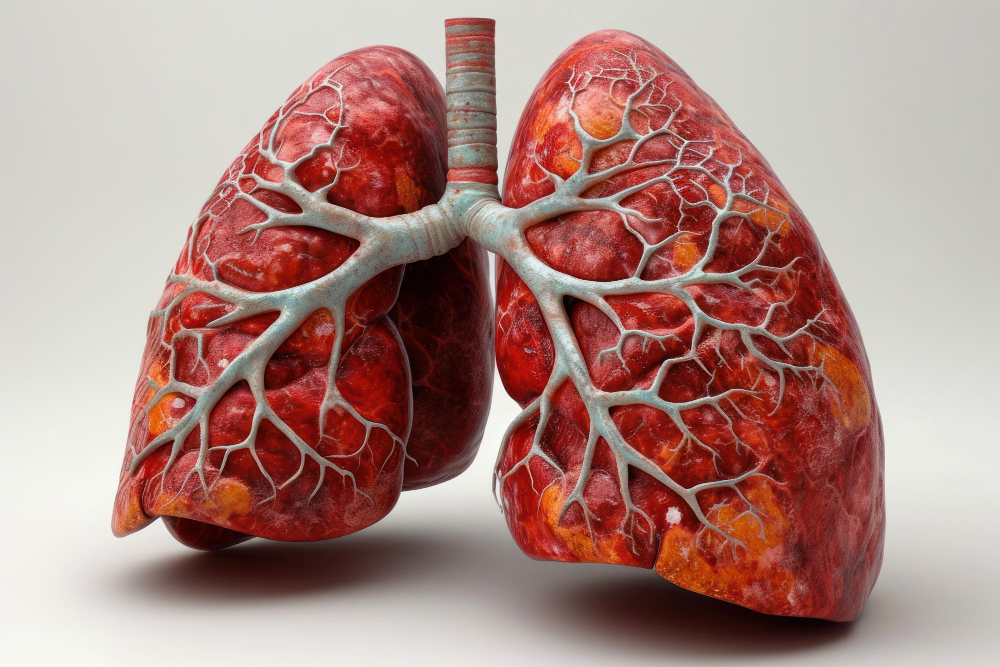Lung Cancer

Lung cancer is a malignant tumor that develops in the lungs, typically as a result of long-term exposure to carcinogens such as cigarette smoke, asbestos, or radon gas. Here are key points about lung cancer:
- Types: Lung cancer is broadly categorized into two main types: non-small cell lung cancer (NSCLC) and small cell lung cancer (SCLC), each with distinct characteristics and treatment approaches.
- Symptoms: Common symptoms of lung cancer include persistent cough, chest pain, shortness of breath, coughing up blood, fatigue, and unexplained weight loss.
- Diagnosis: Diagnosis involves imaging tests such as chest X-rays or CT scans, along with biopsy to confirm the presence of cancerous cells and determine the type and stage of lung cancer.
- Treatment: Treatment options for lung cancer depend on the type, stage, and overall health of the patient and may include surgery, chemotherapy, radiation therapy, targeted therapy, immunotherapy, or a combination of these approaches.
- Prognosis: The prognosis for lung cancer varies widely depending on factors such as the stage at diagnosis, the type of cancer, and the individual’s overall health. Early detection and prompt treatment significantly improve survival rates.
- Prevention: Preventive measures include avoiding exposure to tobacco smoke, occupational carcinogens, and environmental pollutants, as well as regular screening for individuals at high risk, such as current or former smokers.
- Research and Advances: Ongoing research into the molecular mechanisms of lung cancer and the development of targeted therapies and immunotherapies offer promising avenues for improved treatment outcomes and survival rates in patients with lung cancer.
